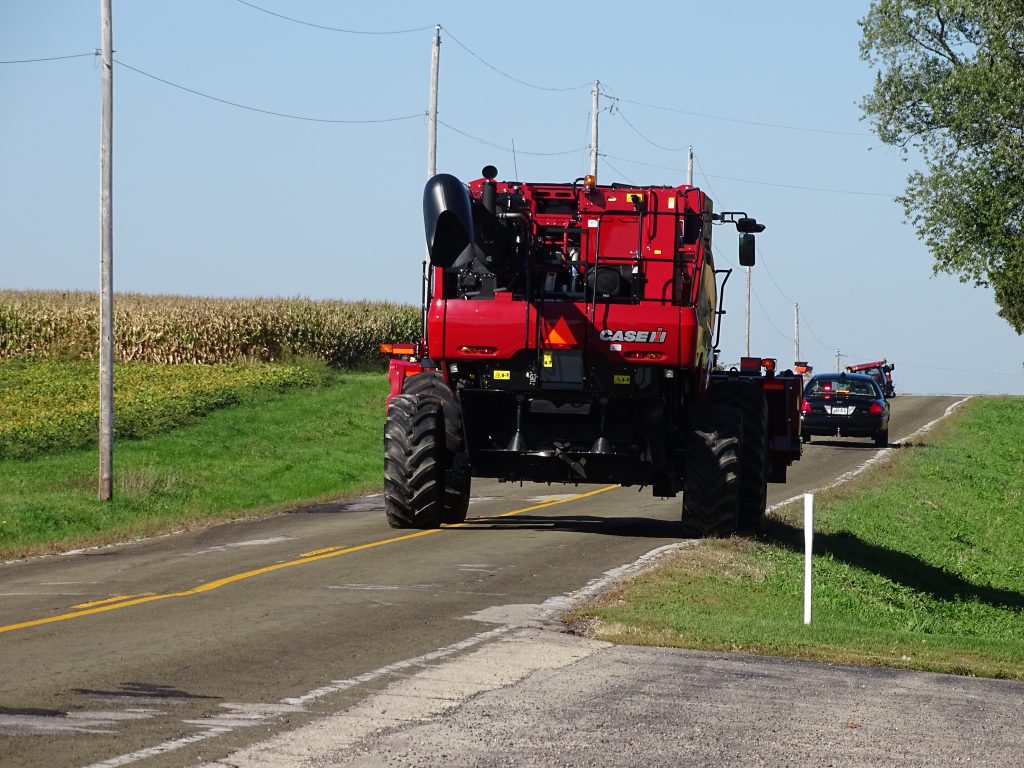
Wisconsin’s Implements of Husbandry law
Wisconsin Act 377 gives farmers the ability to operate equipment legally and safely on roadways throughout the state. The legislation was signed into law by Governor Walker on April 23, 2014.
What’s in Wisconsin Act 377?
As farm machinery has modernized, one of the things that Farm Bureau sought was a clearer definition of what qualifies as an Implement of Husbandry (IOH). Act 377 does that, and it also creates a new definition for Agricultural Commercial Motor Vehicle (Ag-CMV).
Act 377 establishes height, length, weight and width parameters to better represent the size and use of modern machinery that at times needs to be operated on roadways.
A no-fee permitting system has been put in place to address both our farmers’ need to get their machinery from farm to field and local officials’ responsibility to protect the taxpayer investment put into our roads and bridges.
How can I find out more?
There are many components to Wisconsin Act 377, so please use these quick links to find the information that you need to better understand how the law might impact you.
Learn more
- DOT – Agricultural Equipment and Vehicles
- DOT – Agricultural Commercial Motor Vehicles (Ag CMVs)
- DOT – Implements of Husbandry
- Legislative History
Need to apply? No Fee Agriculture Permit Application

